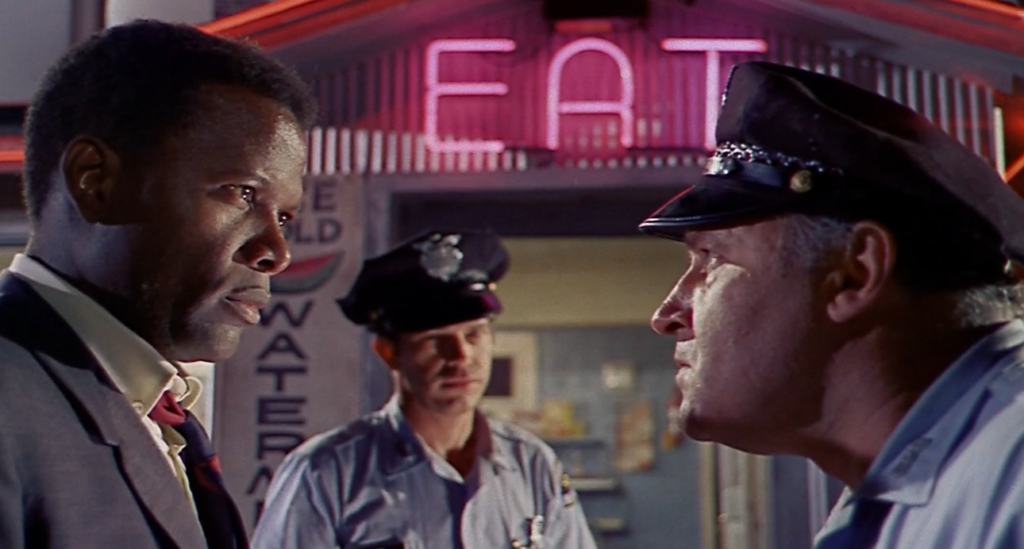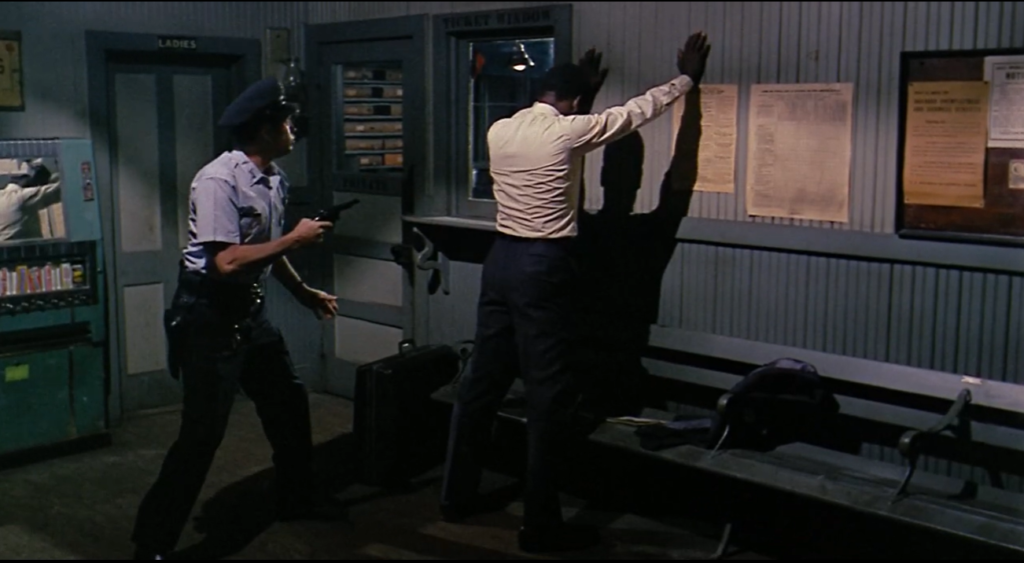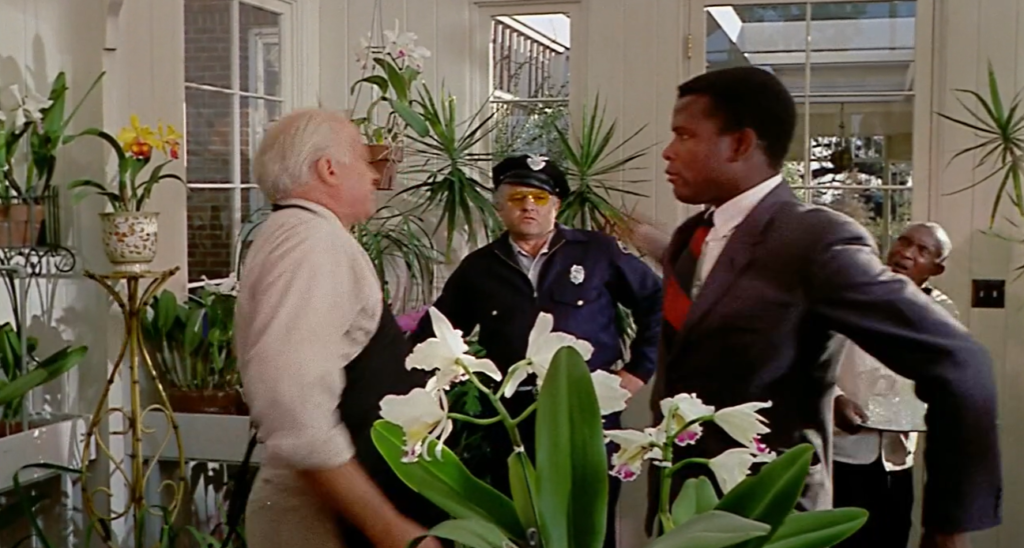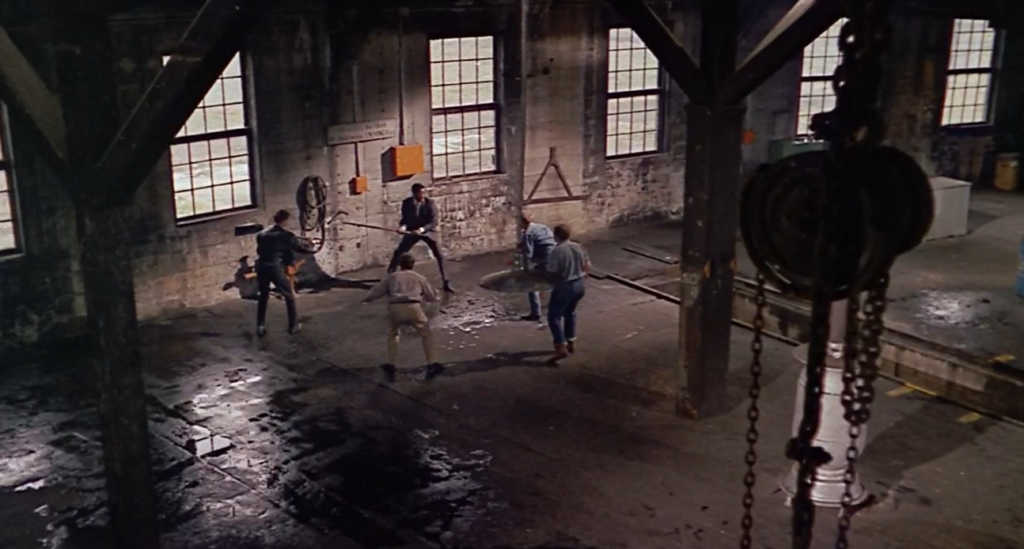In the Heat of the Night (1967)
“They call me Mister Tibbs!”
|
Synopsis: |
|
Genres, Themes, Actors, and Directors:
Review: He refers to In the Heat of the Night as a “muddled” mystery (I disagree), noting that while both Poitier films “were noncontroversial ‘controversial’ films,” “at least Jewison’s film had some bite to it, provided by Poitier as a surly cop from Philadelphia and Rod Steiger as the redneck sheriff with whom he forms an uneasy alliance” — though he ultimately doesn’t think it stands up against other formidable films released that year, such as Bonnie and Clyde, which he names Best Picture of the Year instead. Regarding Steiger’s Oscar-winning performance, Peary writes: “It’s hard to fathom today, but for a brief time in the mid-sixties, beginning with an uncharacteristically restrained performance in The Pawnbroker, Rod Steiger was considered by many to be America’s foremost movie actor.” He adds, “The egotistical actor himself believed this, and, taking charge of his career, promptly drove it into the ground, giving himself a heart attack in the process.” Touché, Peary! In trying to research this claim, the only “evidence” I could find was this quote by Steiger on IMDb.
At any rate, Peary argues that while “Steiger was well cast and forceful as usual,” many “at the time failed to notice” that “he used a combination of (undeniable) talent and bluster to cover up a lazy, shallow portrayal of a potentially fascinating character,” and laments what could have been “if he’d only stopped shouting and calmed down for a moment.” I respectfully disagree with Peary’s take on Steiger’s performance, which to me seems spot-on — after all, his character IS lazy and shallow, and probably not all that fascinating. Chief Gillespie is part and parcel of a small, deeply racist town where within ten minutes of the film, Poitier’s character is arrested for being black: … and drawn against his will into a murder mystery being handled with spectacular incompetence by Steiger and his accomplice, Warren Oates’ Officer Sam Wood. Their incompetence doesn’t abate, and it’s crystal clear that they need Poitier in order to do their job. In the Heat of the Night remains a challenging film to watch precisely because of how many truths it lays out for us to witness: there is simply no denying the role played by race and racism in every move made throughout the screenplay. In the film’s most satisfying sequence — indeed, it ranks among the top moments in cinematic history — Poitier delivers an unhesitant slap to a white cotton plantation owner (Larry Gates) who he believes to be a prime suspect. This sustains us for a while, though we worry even more for Poitier as he instantly becomes the target of lethal mobs: … and sticks around simply to see justice of one kind or another playing out. Film fanatics will definitely want to check this one out — though whether you can stomach watching it more than once will be up to you. (I saved re-watching it until near the end of this film review project, precisely because I accurately remembered how rough it was.) Notable Performances, Qualities, and Moments:
Must See? Categories
(Listed in 1001 Movies You Must See Before You Die) Links: |












